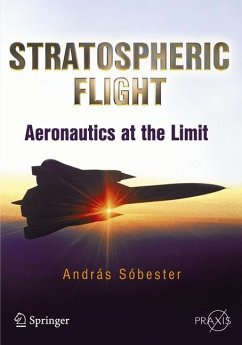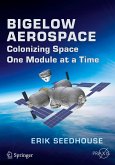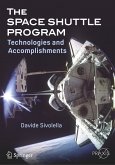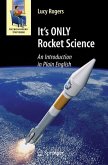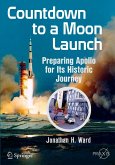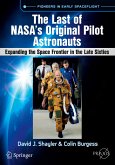In this book, Dr. Andras Sobester reviews the science behind high altitude flight. He takes the reader on a journey that begins with the complex physiological questions involved in taking humans into the "death zone." How does the body react to falling ambient pressure? Why is hypoxia (oxygen deficiency associated with low air pressure) so dangerous and why is it so difficult to 'design out' of aircraft, why does it still cause fatalities in the 21st century? What cabin pressures are air passengers and military pilots exposed to and why is the choice of an appropriate range of values such a difficult problem? How do high altitude life support systems work and what happens if they fail? What happens if cabin pressure is lost suddenly or, even worse, slowly and unnoticed?
The second part of the book tackles the aeronautical problems of flying in the upper atmosphere. What loads does stratospheric flight place on pressurized cabins at high altitude and why are these difficult to predict? What determines the maximum altitude an aircraft can climb to? What is the 'coffin corner' and how can it be avoided? The history of aviation has seen a handful of airplanes reach altitudes in excess of 70,000 feet - what are the extreme engineering challenges of climbing into the upper stratosphere? Flying high makes very high speeds possible -- what are the practical limits?
The key advantage of stratospheric flight is that the aircraft will be 'above the weather' - but is this always the case? Part three of the book investigates the extreme atmospheric conditions that may be encountered in the upper atmosphere. How high can a storm cell reach and what is it like to fly into one? How frequent is high altitude 'clear air' turbulence, what causes it and what are its effects on aircraft? The stratosphere can be extremely cold - how cold does it have to be before flight becomes unsafe? What happens when an aircraft encounters volcanic ash at high altitude? Very highwinds can be encountered at the lower boundary of the stratosphere - what effect do they have on aviation?
Finally, part four looks at the extreme limits of stratospheric flight. How high will a winged aircraft will ever be able to fly? What are the ultimate altitude limits of ballooning? What is the greatest altitude that you could still bail out from? And finally, what are the challenges of exploring the stratospheres of other planets and moons?
The author discusses these and many other questions, the known knowns, the known unkonwns and the potential unknown unknowns of stratospheric flight through a series of notable moments of the recent history of mankind's forays into the upper atmospheres, each of these incidents, accidents or great triumphs illustrating a key aspect of what makes stratospheric flight aviation at the limit.
The second part of the book tackles the aeronautical problems of flying in the upper atmosphere. What loads does stratospheric flight place on pressurized cabins at high altitude and why are these difficult to predict? What determines the maximum altitude an aircraft can climb to? What is the 'coffin corner' and how can it be avoided? The history of aviation has seen a handful of airplanes reach altitudes in excess of 70,000 feet - what are the extreme engineering challenges of climbing into the upper stratosphere? Flying high makes very high speeds possible -- what are the practical limits?
The key advantage of stratospheric flight is that the aircraft will be 'above the weather' - but is this always the case? Part three of the book investigates the extreme atmospheric conditions that may be encountered in the upper atmosphere. How high can a storm cell reach and what is it like to fly into one? How frequent is high altitude 'clear air' turbulence, what causes it and what are its effects on aircraft? The stratosphere can be extremely cold - how cold does it have to be before flight becomes unsafe? What happens when an aircraft encounters volcanic ash at high altitude? Very highwinds can be encountered at the lower boundary of the stratosphere - what effect do they have on aviation?
Finally, part four looks at the extreme limits of stratospheric flight. How high will a winged aircraft will ever be able to fly? What are the ultimate altitude limits of ballooning? What is the greatest altitude that you could still bail out from? And finally, what are the challenges of exploring the stratospheres of other planets and moons?
The author discusses these and many other questions, the known knowns, the known unkonwns and the potential unknown unknowns of stratospheric flight through a series of notable moments of the recent history of mankind's forays into the upper atmospheres, each of these incidents, accidents or great triumphs illustrating a key aspect of what makes stratospheric flight aviation at the limit.

